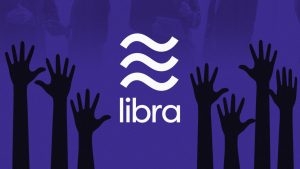When your web site has 2.4 billion monthly active users, you have various massive opportunities you could pursue. For Mark Zuckerberg, he decided his next big move would be in the world of cryptocurrencies. Facebook recently announced Libra to the world.
Per the Company, "Libra is a global, digitally native, reserve-backed cryptocurrency built on the foundation of blockchain technology. People will be able to send, receive, spend, and secure their money, enabling a more inclusive global financial system."
While the ambitious undertaking has its skeptics, the idea might just work. From the start Facebook has managed to corral a number of major organizations to support Libra’s roll out, including financial partners like Mastercard, Visa, PayPal, Spotify, Andreessen Horowitz, and Uber. In addition, it is backed by real assets in the form of a basket of currencies thus mitigating potential excessive volatility.
What governments fail to do, corporations may be able to solve. Libra is intended to provide the unbanked and immigrants with a means to conduct transactions. The many millions of immigrants around the globe with a need to send money to family in their native countries on a periodic basis can reduce or eliminate hefty transaction costs. Today, those transfers add up to $25 billion a year, according to Facebook.
Even if Libra could work and has benefits for the broader population, Facebook faces opposition from those who believe the cryptocurrency places too much power in the hands of the corporations who are members of the Libra network. Central banks, who manage monetary policy, may be less effective and less relevant in a world where large companies have the ability to control the currency being used in their ecosystem.
According to one critic, Chris Hughes (a Facebook co-founder), "Libra will disrupt and weaken nation states by enabling people to move out of unstable local currencies and into a currency denominated in dollars and euros and managed by corporations," adding "The fewer rupees or lira a country's citizens hold, the less power the national central bank has to set monetary policy, making it harder to stimulate the local economy in times of economic stress."
In addition to a shift in power on monetary policy, Libra faces possible opposition in the area of privacy. “Despite the company’s claims to have developed more of a conscience over how it uses data, executives have suffered negligible consequences,” noted the Financial Times. “While Calibra has pledged customers’ account information will not be used to target advertising, Facebook’s record on this front gives cause for doubt.”
Facebook’s Libra has already started making big waves in the world of financial technology and government, however, it’s too early to tell just how widespread its use and impact will be after it undergoes heavy government, corporate and public scrutiny and addresses the demands imposed by modifying product features, policy and overall functioning of the cryptocurrency.
























